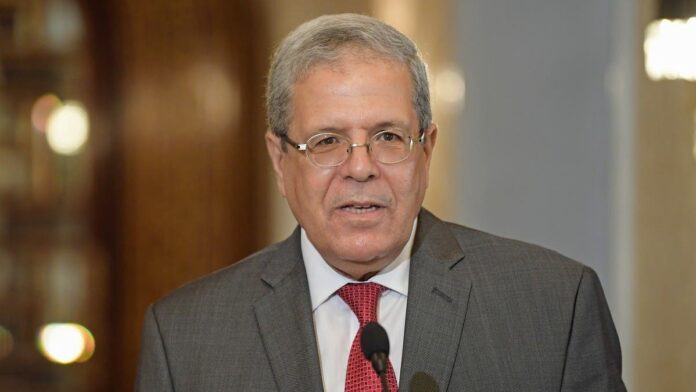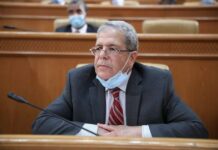Tunisia is committed to continuing to cooperate with the Office of the United Nations High Commissioner for Human Rights, promised on Tuesday Othman Jerandi, Minister of Foreign Affairs, Migration and Tunisians Abroad, during a his intervention, by videoconference, on the occasion of a meeting marking the celebration of the 10th anniversary of the opening of the office of the United Nations High Commissioner for Human Rights in Tunisia (OHCHR).
For Jerandi, the decision to open this office was at the request of the Tunisian state to break with past bad practices and promote respect for human rights in the country.
“The United Nations are there to help Tunisia to build, on solid and lasting foundations, a true democracy”, he affirmed, adding that the office of the OHCHR is the witness of the radical transformation of the Tunisian democracy , in a context of crisis ”.
Tunisia has benefited from the technical assistance of OHCHR to strengthen its legislative and institutional arsenal reserved for human rights, including the training of magistrates and the “transport of the transitional justice process to port. “.
According to the minister, cooperation between Tunisia and OHCHR has been remarkably consolidated over the past ten years, both in terms of text and practice.
In addition, the Minister stressed that Tunisia is counting on its own efforts to promote human rights but also on the support of its partners, starting with the OHCHR and this, according to its needs demanded by the current context.
“The progress made in the area of human rights over the past ten years is a source of pride for Tunisia,” he said.
On another note, Jerandi said that Tunisia is currently looking into the development of a comprehensive diagnosis of the difficulties and priorities in the promotion of human rights in order to put in place clear and efficient programs.
The UN resident coordinator in Tunisia Arnaud Péral welcomed the progress made by Tunisia in terms of human rights and the participation of civil society, adding, however, that “there is still a long way to go. », Particularly with regard to transitional justice issues, the consolidation of the rule of law and its institutional instruments in addition to the means of combating violence against women.
For his part, the president of the Higher Committee for Human Rights and Fundamental Freedoms, Taoufik Charfeddine, praised the work carried out by the OHCHR office which, since its entry into activity in Tunis on January 13, 2011, has consolidated the Tunisian system for the defense of human rights and freedoms and significantly supported the democratic transition.
The president of the Independent High Authority for Audiovisual Communication (HAICA) Nouri Lajmi, for his part, referred to the cooperation established in 2015 between the OHCHR office in Tunis and the Regulatory Authority, for the fight against discourse hatred, incitement to violence and against all forms of discrimination.











